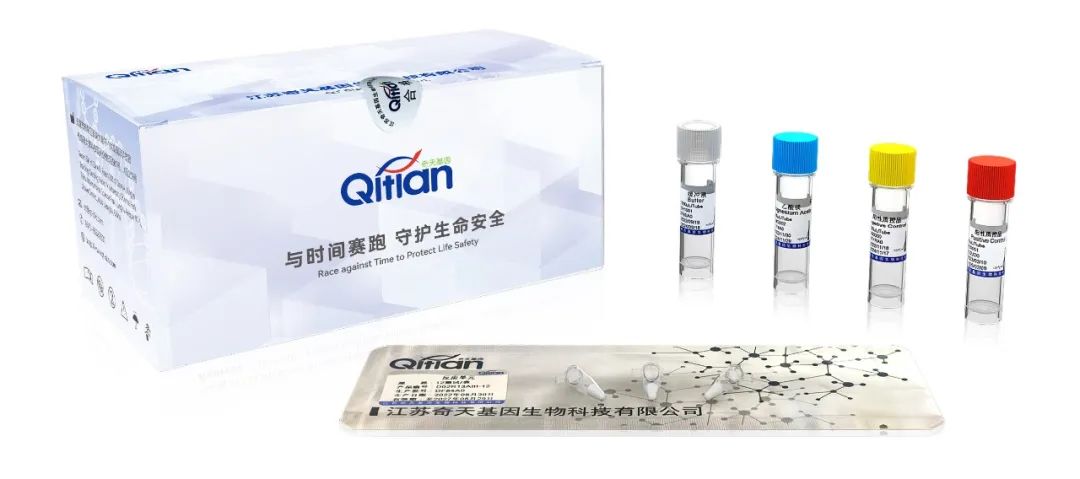
News Center
News and Development
Tier-1 Virus, Tier-1 Solution — QT BIO's Detection Kit for Nipah Virus
Release Time:
2025-09-10
The Korea Disease Control and Prevention Agency has announced that starting from September 8, Nipah virus infection will be classified as a Level 1 infectious disease.
The Korea Disease Control and Prevention Agency has announced that starting from September 8, Nipah virus infection will be classified as a Level 1 infectious disease. South Korea has implemented a four-tier classification system for infectious diseases since 2020, with Level 1 being the highest. This is the first time a new disease has been added to the Level 1 category since the four-tier system was introduced in 2020. According to South Korea’s infectious disease classification guidelines, suspected and confirmed cases of Nipah virus will undergo public health management measures, including mandatory reporting, isolation, contact tracing, and epidemiological investigations. The World Health Organization has listed Nipah virus in its priority pathogen list, which includes pathogens with pandemic potential.
What is Nipah virus?
Nipah virus is a zoonotic virus (meaning it can be transmitted from animals to humans) and can also be transmitted to humans through contaminated food or via direct human-to-human transmission. The virus causes a range of symptoms in infected individuals, including asymptomatic (subclinical) infection, acute respiratory illness, and fatal encephalitis. Nipah virus can also cause severe disease in animals such as pigs, leading to significant economic losses for farmers.
Transmission Routes
Nipah virus was first identified in Malaysia in 1998, primarily affecting pig farmers and individuals with close contact with animals. In subsequent outbreaks in Bangladesh and India, consumption of fruits or fruit products (such as raw date palm juice) contaminated with urine or saliva from infected fruit bats was the most likely source of infection.Human-to-human transmission of Nipah virus has also been reported among family and care givers of infected patients.
Symptoms
Nipah virus can attack the lungs and brain, with symptoms including fever, headache, drowsiness, confusion, and coma. The mortality rate among infected individuals is as high as 75%. The mortality rate in animals is 60%. According to the WHO, the incubation period from infection to the onset of symptoms typically ranges from 4 to 14 days, but can extend up to 45 days.
Diagnosis & Prevention
Currently, there are no specific vaccines or effective treatments for Nipah virus. Moreover, the initial signs and symptoms of Nipah virus infection are non-specific and often not suspected at the onset. This can hinder accurate diagnosis and pose challenges for detecting outbreaks, implementing effective and timely infection control measures, and conducting outbreak response activities.
Additionally, the quality, quantity, type, and timing of clinical sample collection, as well as the time taken from sampling to delivery to the laboratory, can affect the accuracy of laboratory results.
Therefore, timely and efficient on-site testing is crucial.
QT BIO's Nipah Virus Detection Kit utilizes RAA isothermal technology, requiring no laboratory environment or professional expertise, and delivers results within 30 minutes.

Nipah Virus Detection Kit

Efficient Amplification: Results in 30 minutes at 39°C
Accurate Detection: High sensitivity (10 copies/test), strong specificity, enabling rapid detection of early infections
On-Site Testing: No laboratory environment needed, detect at anytime, anywhere.
Simple Operation: Easily mastered by non-professionals with minimal training
QT Biotech Co., Ltd.
Tel: +86-510-85385531
Mobile: +86-18921157475
Email: qt@qt-bio.com
Website: www.qt-bio.com
Address: No. 97, Xingye Building B, Linghu Avenue, Xiwu District, Wuxi City
Racing against time, guarding life safety

WeChat Account

Official Public Account

